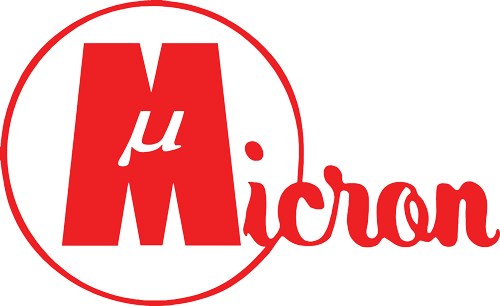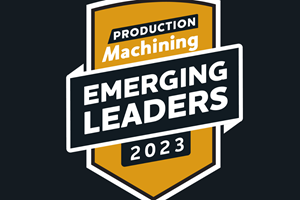Training the Next Generation: Boston Centerless and Micron Present New Ways to Integrate Millennials into the Workforce
At this year’s PMPA National Technical Conference, members Micron and Boston Centerless gave insight into their new and innovative hiring and training processes aimed to appeal to millennials entering the workforce.
At this year’s PMPA National Technical Conference, members Micron and Boston Centerless gave insight into their new and innovative hiring and training processes aimed to appeal to millennials entering the workforce. With millennials quickly taking over the job market, values and expectations between employers and employees have shifted from those of past generations. The new generation now craves a work environment that not only stimulates and challenges, but also gives opportunities to learn from and be mentored by upper management. Both Micron and Boston Centerless adapted to these desires and expectations and have already yielded impressive results.
For more than half a century, family owned Boston Centerless has become a leading supplier of precision materials in the aerospace, automotive, dental, defense and other sectors and currently has a market presence in 45 states and 24 countries. The company has grown to 110 employees working in its 47,000-square-foot headquarters. To maximize its effi ciency, Boston Centerless puts heavy emphasis on its hiring and training programs through high levels of investment in its new hires. Some of these practices include up to 6 months of basic skill set training, at least 2 weeks of training with a buddy operator and cross training at the employee’s request to increase salary opportunities. The employees’ live testing is heavily based on repetition that builds toward profi ciency, not just competency. Rather than penalization or termination, employees who hold themselves accountable for mistakes are retrained or transferred to another task.
“In our line of work where precision and consistency are required from job to job, part to part and customer to customer, we can’t have variation between operators,” says David Mersereau, senior vice president and general manager at Boston Centerless. “It was critical that we achieved the fl exibility to place work with any employee and achieve the same quality and precision.”
During the presentation, Boston Centerless revealed its massive master board, which shows its employees and all 174 possible certifi cations offered by the company that can be obtained to boost experience and earning potential. When an employee becomes certified in a fi eld, a dot is added to the master board. The board serves many purposes for the staff, such as encouraging cross training, allowing the company to quickly see its most skilled operators, its strongest and weakest areas of skill sets, each employee’s experience level and opportunities for capacity expansion. Most of all, the master board serves as a transparent and stimulating reminder of the growth potential for young employees who seek a diverse skill set and wish for upward mobility within a company. And their patient efforts in employee training have already paid off. Today, Boston Centerless holds an impressive 99 percent employee retention rate.
“Having a database in some computer and only reviewing where folks stand once a year at a performance review just doesn’t work,” Mr. Mersereau says. “As a ‘process guy,’ it’s all about knowing where you are, being able to measure progress and then recognize the contribution of the individual and the team as improvements are made.”
Micron is another company dedicated to a strong retention rate. Most of its workers stay with the company for an average of 17 years. Since 1952, Micron has become a leader in precision metal manufacturing. Today, the company reaches out to its younger employees by integrating smartphone and video technology into its work safety practices. Rather than giving its employees expansive manuals and complicated instructions in crucial situations, Micron’s Business Interruption and Recovery Team generated QR codes that can be scanned with a smartphone and lead the employee to a short, concise training video that can solve the issue in a safe and timely manner without the damages of a total emergency shutdown on the shop fl oor. The concept was very well received amongst the company’s machinists, and they plan to make many more of these videos and codes.
“It makes it very easy to capture the tribal knowledge that the baby boomers have, and it delivers the knowledge at the point of use and in an intuitive manner, such as watching videos, that allows the millennials to utilize tools like mobile devices that they are already familiar with,” says Dave Seabrook, who works in tech support at Micron. “When using traditional work instructions that consist of words and pictures to describe a process that has critical and potentially dangerous steps, it is likely that some details will be lost in the translation.
They get to hear infl ections in the expert’s voice and see exactly the motions that are necessary to achieve success.”
Related Content
2023 Emerging Leaders Strengthen Their Staffs, Solve Problems
Superb critical thinking, top-notch leadership skills and a passion for building a strong team are a few of the common traits held by this year’s five Production Machining Emerging Leader award winners.
Read MoreManufacturing Skills Training: Virginia Martinez and Laiken Carrillo
Roles of Women in Manufacturing Series: A precision machining career starts with skills. Virginia and Laiken share their journey and how they help prepare the next generation.
Read MoreNew Thinking from the New Generation for the New Year
“We have to learn to think in a new way.” –Albert Einstein
Read MoreThe Value of Aligning Efforts to Promote Manufacturing Careers
Successfully building the next generation of manufacturers requires a team effort between employers, educators and parents. Each of these three groups has a tremendous impact on young people’s career decisions. Without the support of all three, we are unlikely to bridge the skilled labor shortage that threatens the future growth of our industry.
Read MoreRead Next
5 Aspects of PMTS I Appreciate
The three-day edition of the 2025 Precision Machining Technology Show kicks off at the start of April. I’ll be there, and here are some reasons why.
Read MoreDo You Have Single Points of Failure?
Plans need to be in place before a catastrophic event occurs.
Read MoreA Tooling Workshop Worth a Visit
Marubeni Citizen-Cincom’s tooling and accessory workshop offers a chance to learn more about ancillary devices that can boost machining efficiency and capability.
Read More























